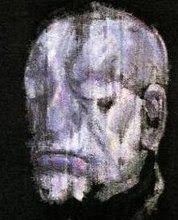
In one of his many excellent posts Graham Harman (here) seemed to argue that Peter Hallward’s repeated calls for a more relational ontology were based upon the idea that it would be innately more leftist in orientation. I think that Hallward (in his recent reviews of Meillassoux’s After Finitude and Badiou’s Logics of Worlds) is pointing towards the more practical issues of praxis. It is not so much that Hallward identifies relational ontologies as necessarily being leftist in orientation, rather that his critique of Deleuze Meillassoux and Badiou rests upon the lack of concrete and strategic support their political ontologies offer for praxis. If we are thinking of Hallward’s recent criticisms of Badiou (and his pupil Meillassoux) it is above all paralysis and quietude, passivity in other words, that is his chief target. For Hallward relational ontology offers a better tool for a leftist politics to analyse problematical practical situations and derive new ways of actually acting within them. Badiou’s hyper anti-relational politics (if in doubt check out his thoughts on political organisation in Metapolitics- “the most unbound place of all” etc) offers little beyond its analysis of evental sites and marginality as the zone from which revolutionary activities spring from. Even in terms of the relational update Logiques des Mondes Badiou remains pretty primitive (cf: his analysis of Mao’s red army thought in terms of the adaptations of a body of a truth to various ‘points’ which confront it). However I am also aware that the kind of relational ontology Hallward has in mind is going to be far from a De Landian or Latourian form (in conversation Hallward has stated that De Landa’s A New Philosophy of Society is “slick” but ultimately with little concrete to offer a politics of emancipation). I myself think De Landa is quite a bit more worthy of comment, specifically in the way that his post Deleuzo-Guattarian account of assemblages is able to challenge the more traditional “folk-political” concept of the political field.
Moreover the prospective Hallwardian project (aka “Relational Reality”) will consist of a relational ontology combined with a kind of post-Sartrean (or neo-Sartrean) subject equipped with a political will, against the crucial backdrop of history. The latter entails some kind of resurrection of the “resources of the dialectic”, though so far Hallward has yet to reveal what form this might take. My own hunch might be a thoroughly re-equipped version of something resembling Sartre’s own Critique of Dialectical Reason, with a more thoroughly integrated relational component, a fascinating if dangerous approach!
Moreover the prospective Hallwardian project (aka “Relational Reality”) will consist of a relational ontology combined with a kind of post-Sartrean (or neo-Sartrean) subject equipped with a political will, against the crucial backdrop of history. The latter entails some kind of resurrection of the “resources of the dialectic”, though so far Hallward has yet to reveal what form this might take. My own hunch might be a thoroughly re-equipped version of something resembling Sartre’s own Critique of Dialectical Reason, with a more thoroughly integrated relational component, a fascinating if dangerous approach!


1 comment:
To sum beats by dre uk up,we should offer our help to all the needed.We expect beats by dre sale to get love from others and we also beats by dre sale uk give love to others.So when you see someone in difficulty or cheap beats by dre in distress and in need of help,don't hesitate beats by dre headphones to give your love to him (her).I believe that beats by dre uk the relationship between people will be harmonious and that our beats by dre sale society will be a better place for us to live in.Actually,beats by dre sale uk people are showing a real concern over the problem.For example,cheap beats by dre there is an increasingly loud voice from the public for firm action against pollution beats by dre headphones from automobiles.
Post a Comment